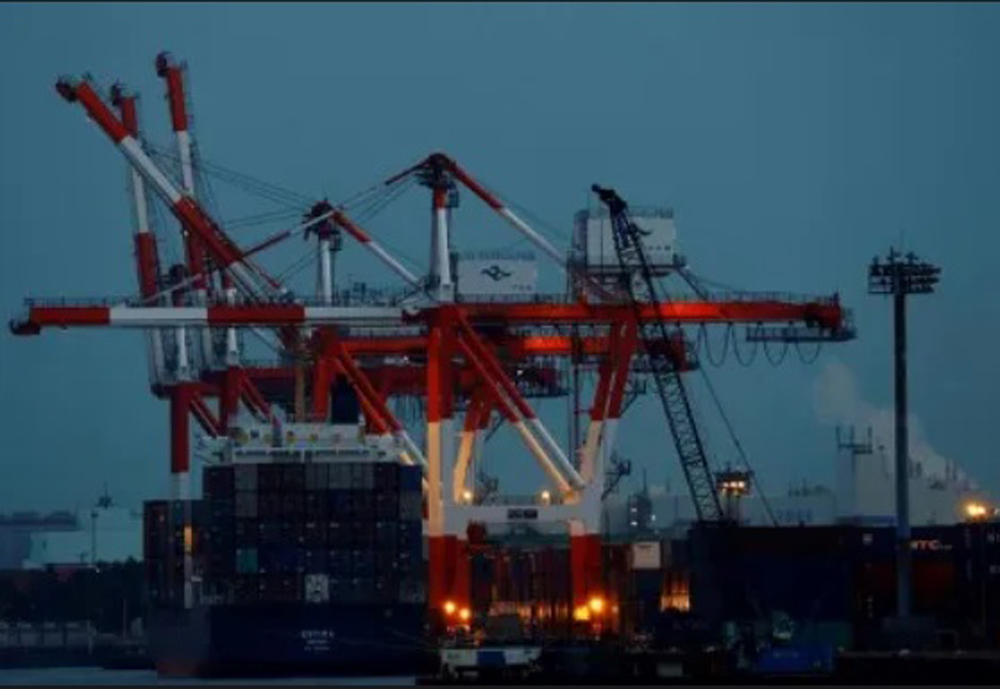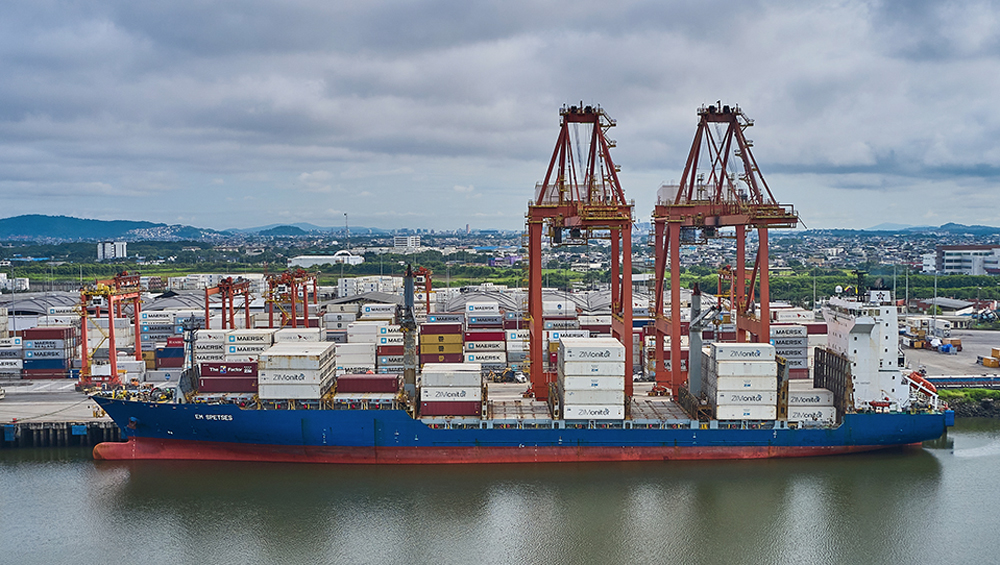TOKYO- Japan’s export growth hit its weakest pace in more than two years in April as China-bound shipments slumped amid lingering worries about faltering global economic demand.
Exports rose 2.6 percent in April from a year earlier, Ministry of Finance data showed on Thursday, slower than a 3.0 percent increase expected by economists in a Reuters poll and a 4.3 percent rise in March. That marked the weakest gain since February 2021 when exports declined 4.5 percent.
The world’s No. 3 economy emerged from recession in the first quarter, helped by a boost in consumer spending and tourism following the end of COVID-19 pandemic restrictions, but weak exports are weighing on factory activity and hampering a broader recovery.
Exports slumped 4.2 percent in January-March, the first decline in six quarters.
By destination, Japanese exports to China, the country’s largest trading partner, dropped 2.9 percent in April year-on-year, dragged by declines in cars, car parts and steel shipments. It followed a 7.7 percent decline in March and marked a fifth straight month of falls.
Imports fell 2.3 percent in April, much bigger than the median estimate for a 0.3 percent decrease and the first annual decline in 27 months, as prices of crude oil and other commodities fell.
The trade balance came to a deficit of 432.4 billion yen ($3.20 billion), versus the median estimate for a 613.8 billion yen shortfall.
Meanwhile, Prime Minister Fumio Kishida said he welcomed and expected more investment from global chipmakers in Japan, which is striving to revive its chip sector, after meeting top executives on Thursday before a Group of Seven summit.
China is set to be high on the agenda of the annual G7 leaders meeting that begins on Friday, with the United States increasingly urging its allies to counter China’s chip and advanced technology development.
Growing Taiwan and US tensions with China have brought serious challenges to the semiconductor industry, with Taiwan a major producer of chips used in everything from cars and smartphones to fighter jets.
Kishida told the executives, including those from Micron Technology Inc Intel Corp and Taiwan Semiconductor Manufacturing Co, that stabilizing supply chains would be a topic of discussion at the G7 talks in the western city of Hiroshima.
“I am very pleased with your positive attitude towards investment in Japan, and would like the government as a whole to work on further expanding direct investment in Japan and support the semiconductor industry,” Kishida said.
An industry ministry official later said Kishida wanted to foster cooperation to strengthen semiconductor supply chains, while Industry Minister Yasutoshi Nishimura said Japan would use 1.3 trillion yen of the supplementary budget from the last fiscal year to support the semiconductor business in Japan.
Micron said in a statement that it would bring extreme ultraviolet (EUV) technology to Japan, becoming the first semiconductor company to do so, and expected to invest up to 500 billion yen ($3.70 billion) with support from the Japanese government.
The company is also poised to get about 200 billion yen in financial incentives from Japan to help it make next-generation memory chips in the country, Bloomberg News reported on Wednesday.
An industry ministry official said no decision had been made on whether Japan would give a subsidy to Micron, but that one would be made as soon as possible.
The G7 summit runs from Friday to Sunday, and Kishida is set to meet with US President Joe Biden later on Thursday.





